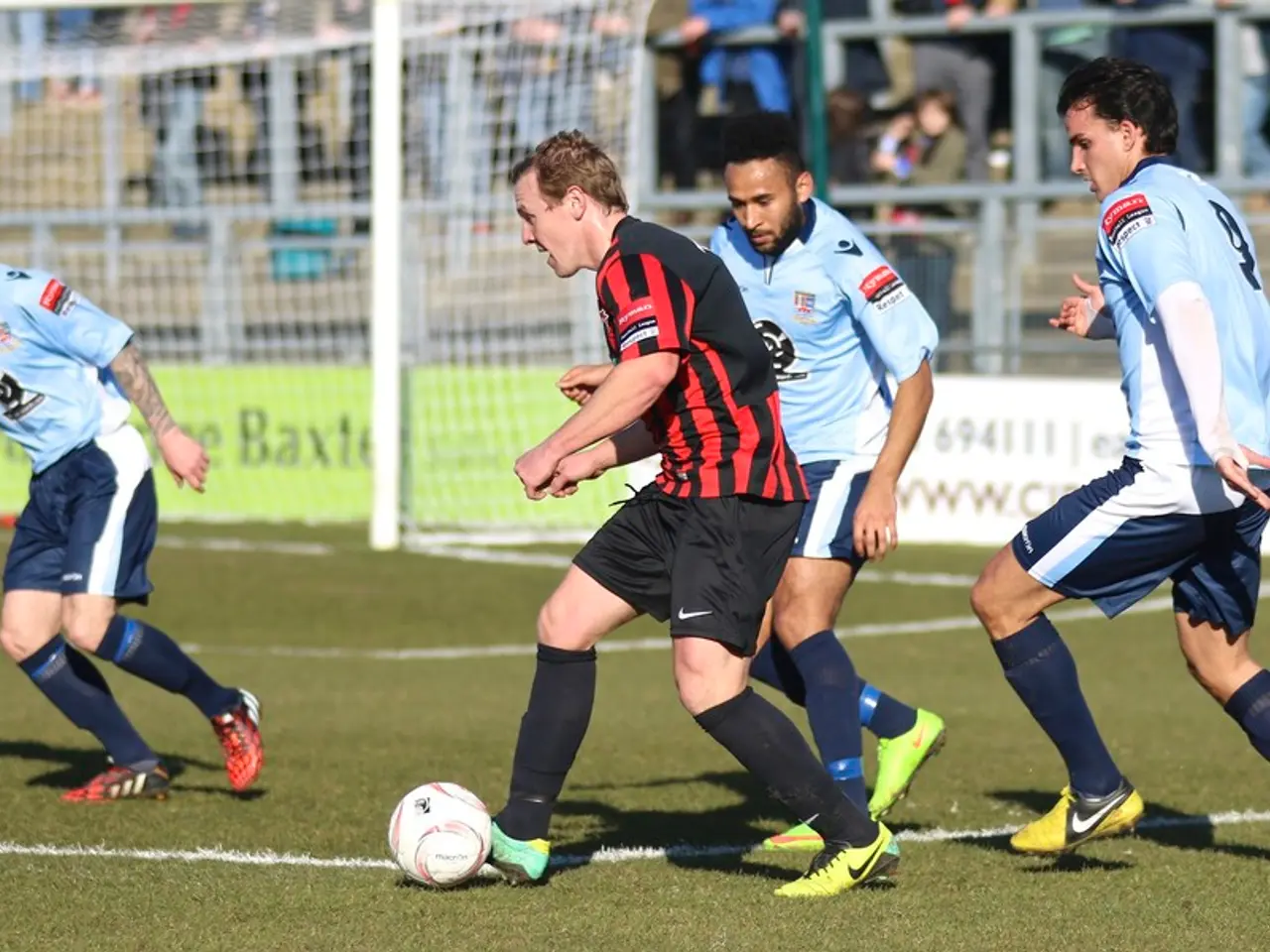Potential Issue for Germany's Future: Inadequate Playtime for Upcoming Talents - If the stars fail to deliver a satisfying performance tomorrow
In the world of football, the focus on nurturing young talent has become a hot topic, with German football finding itself under scrutiny for offering less playing time to its young players compared to countries such as Spain and France. This criticism stems from a more cautious, competitive, and structured approach in German clubs, contrasting with the often more open, creativity-emphasizing environments in Spanish and French youth systems.
One of the key reasons for this criticism is the high competition and pressure in German top clubs. Young talents like Fiete Arp have struggled to secure consistent first-team minutes at Bayern Munich due to intense competition from established stars, limiting opportunities for young player development through actual match experience.
Another factor contributing to this issue is Germany's current identity crisis and overly cautious adaptation. Experts like Matthias Sammer argue that German football has lost its traditional identity, which emphasized collective strength and courage, in an attempt to adapt to modern football. This has led to less daring youth integration on the first-team level, and a loss of playing style that previously nurtured young talent through trust and opportunity.
There is also growing critique about over-coaching and excessive focus on drills and tactical discipline in youth academies, which may stifle creative expression. This rigid approach potentially limits young players’ development and confidence to perform in high-level matches, a factor more embraced in countries like Spain and France.
Comparisons with youth development philosophies elsewhere highlight the need for change. Clubs like Borussia Dortmund try to balance youth integration by committing to homegrown talent with personal development approaches inspired by Spanish models like Barcelona’s La Masia. However, this approach is not uniformly the case across German football.
The discussion about the lack of playing time for young German players took place at the International Trainers' Congress in Leipzig, with Christian Streich, former SC Freiburg coach, expressing concern about the situation. Streich believes that young players should play regularly and perform well in lower-tier clubs like Freiburg, Stuttgart, or Bremen before being considered for the national team.
Jürgen Klopp is advocating for a separate U21 league to extend training time and create new player and coach markets. Roger Schmidt complains that not all clubs in Germany have a U23 team, and believes that there are enough talents in Germany, but the crucial phase seems to be the early professional stage.
The issue of young players not getting enough playing time is not a new one, and it's clear that recalibrating priorities to restore youth trust and better incorporate young talents in senior squads is crucial for the future of German football.
- In contrast to the vigorous vocational training provided in Spanish and French youth systems that nurtures creativity and encourages performance in high-level matches, the German approach, with its over-coaching and excessive focus on drills and tactical discipline, may stifle young players' development and confidence.
- With less emphasis on collective strength and courage, as seen in traditional German football, and a lack of daring youth integration on the first-team level, many argue that Germany's current approach to vocational training for young football players is hindering their growth and potential, ultimately impacting the future of German football.








